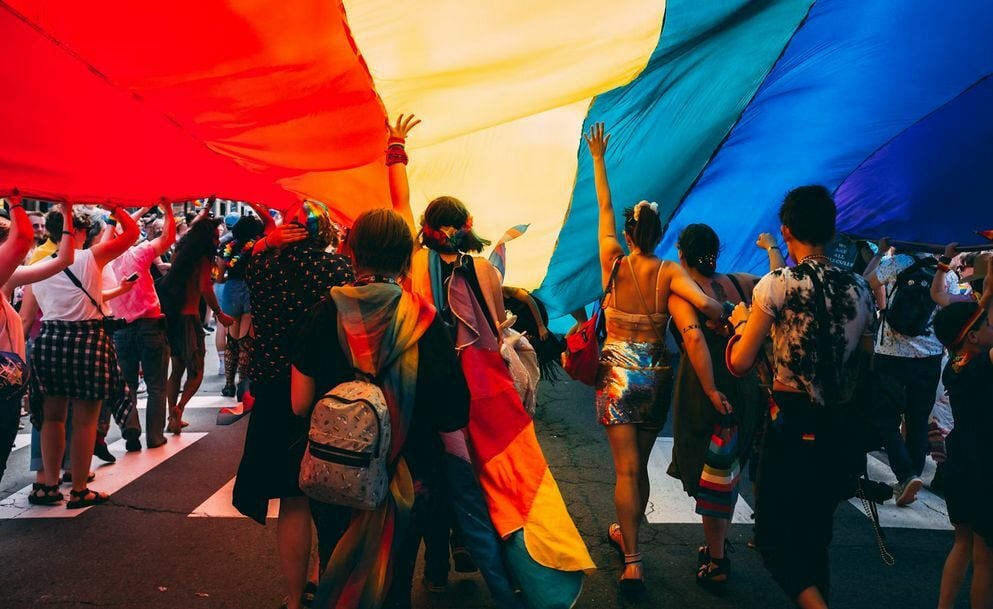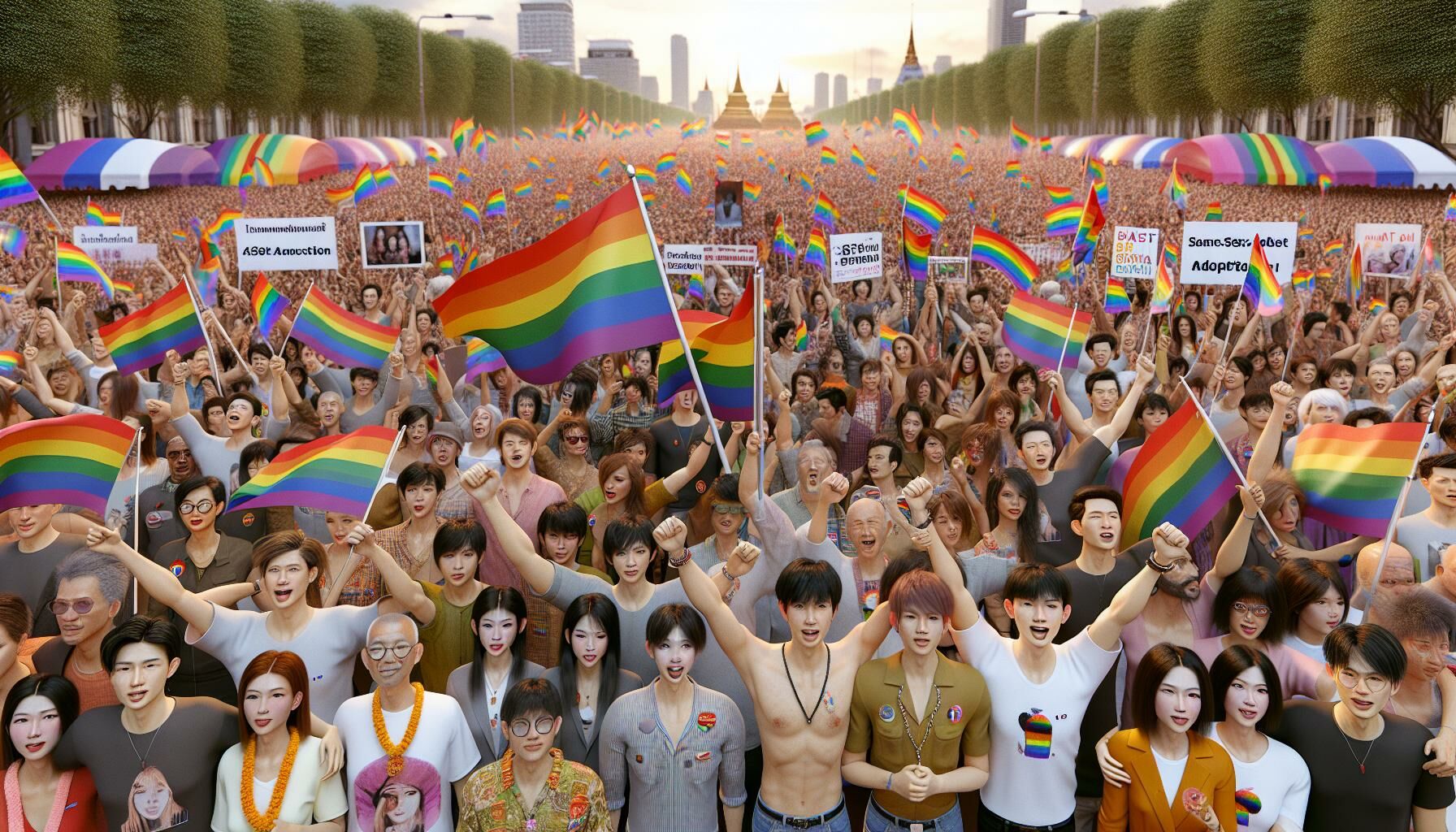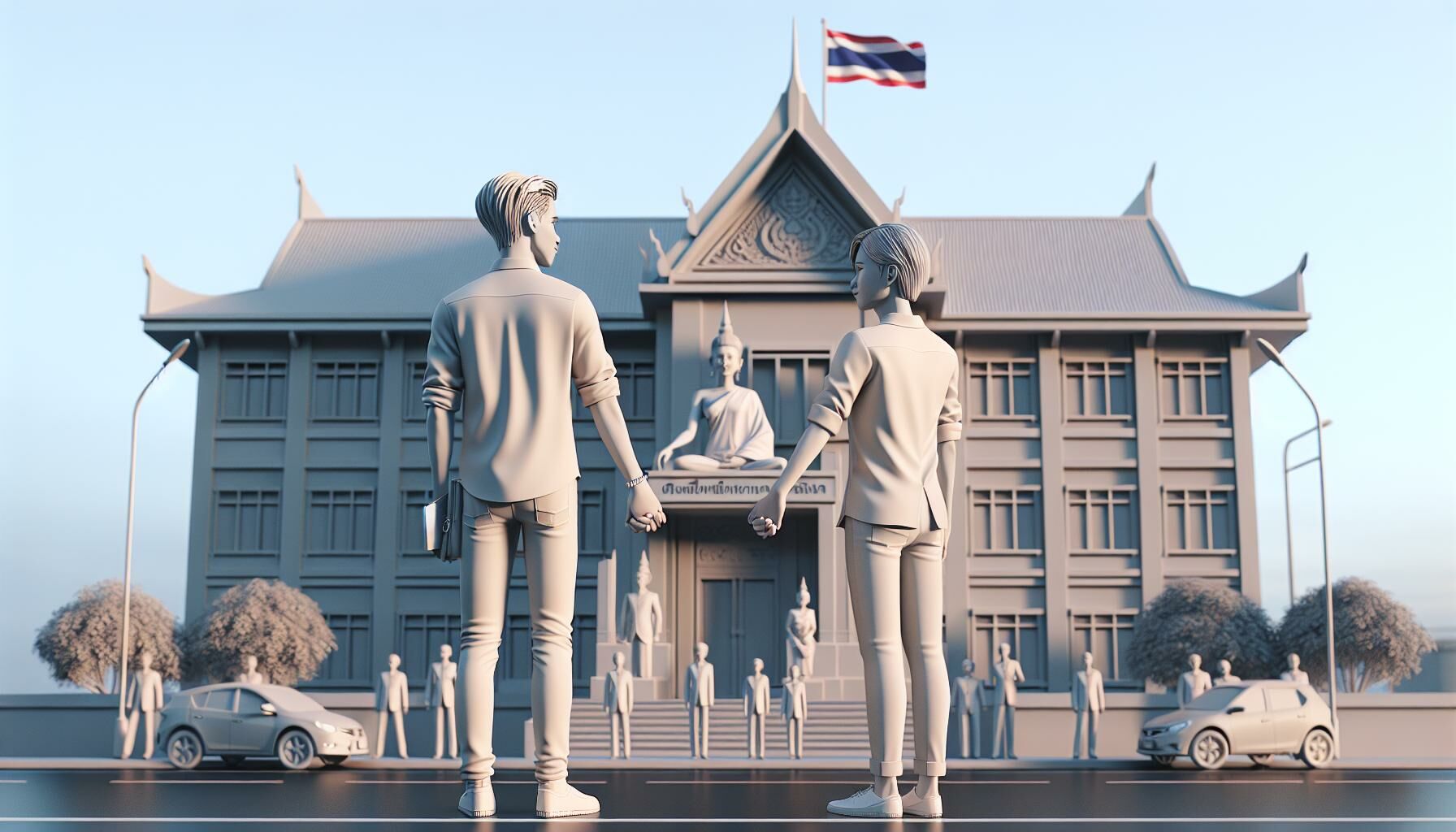Legal challenges of same sex adoption in Thailand

Within the multifaceted and distinctive environment of Thailand, there’s a burgeoning topic that’s capturing significant interest – same sex adoption rights for LGBT couples. Unquestionably, strides have been taken with notable advancements like the Gender Equality Act in 2015. Nonetheless, in terms of all-encompassing equality, specifically on the matter of child adoption rights, this objective has not yet been completely achieved.
In this article, we’ll conduct a comprehensive review of same-sex adoption in Thailand. Our focus will be on the legal hurdles, societal viewpoints, and the prevailing conditions for LGBT couples. Considering that an impressive many of Thai citizens support self-identification rights, it prompts us to question whether legislation should align with these perspectives on adoption rights. Let’s delve into this matter with confidence and clarity.
Same-sex adoption in Thailand
Under the current guidance of Thailand’s criminal codes, adoption by same-sex couples poses a hurdle. Regulative framework fronts the primary issue, as adoption remains the privilege of married couples. As same-sex nuptials do not yet have the legal standings within the country, it diminishes the chance for LGBT individuals to adopt.
The current issues
Thailand’s laws project a rigid emphasis on the conventional comprehension of a ‘couple’. The authorities, therefore, only permit adoptions under the umbrella of marriage, creating a challenging landscape for same-sex couples aspiring to adopt. A legislative amendment pertaining to the Civil and Commercial Code introduced in November 2023, however, replaces terms like ‘men and women’ and ‘husband and wife’ with more inclusive ‘individuals’ and ‘spouses’. Yet, the endorsement of the Senate and the Royal Assent for this progressive adjustment remains pending.
Challenge
Despite these reforms, the path to same-sex adoption in Thailand is littered with challenges. One of the major constraints is securing acceptance and implementing change in attitudes. The limiting views in society and governance on diverse sexualities pose a notable hurdle. Resistance to change witnessed in scenarios like the Novotel incident, referred to above, highlight the societal friction same-sex couples face in Thailand.
LGBTQ Victory
Amidst these struggles, the LGBTQ community in Thailand witnessed a significant victory. The Thai Ministry of Health, in 1995, removed homosexuality from the government’s list labelling it as a ‘mental illness’. The progressive turn of events has allowed the community to inch closer to the goal of achieving adoption rights for same-sex, reinforcing that positive change, albeit slow, is underway in Thailand.
Acceptance in society

Debate on LGBTQ Rights in Thailand Continues
In Thai society exists a dichotomy; historically, it’s been known for its acceptance of the LGBTQ community, yet the laws do not reflect this acceptance in terms of same-sex adoption rights. At the heart of this divide lies the conservative nature of many of the country’s older members, religious organisations, and political leaders. Although they’ve seen an increased acceptance towards members of the LGBTQ community, this acceptance hasn’t translated into equal rights for same-sex couples.
Critically, this disparity is stark when it comes to same-sex adoption in Thailand. Same-sex couples don’t currently enjoy the same rights as heterosexual couples when it comes to adoption. The hindrance of such critical rights presents itself as an ongoing issue, particularly during challenging times such as the terminal illness or death of a partner.
Yet, there’s hope in numbers and public opinion. An encouraging YouGov poll conducted in 2019 showed that 63% of Thais supported the legalisation of same-sex romantic partnerships, while a 2022 poll by the National Institute of Development Administration indicated that 80% supported same-sex marriage. Conversations regarding LGBTQ rights in Thailand are far from over, and such positive statistics indicate a society leaning towards more inclusivity.
Changes at schools
Thailand’s Gender Equality Act of 2015 was touted as a step forward for the country’s LGBTQ community, as it sought to protect individuals, regardless of their inborn gender. However, it’s been met with criticism from the trans community who argue that it constructs trans individuals as people who “express themselves differently from a fixed natal gender”, rather than acknowledging their personal gender experience as contrary to the gender assigned at birth.
To help resolve such issues and encourage inclusivity, Thailand’s educational institutions need to start implementing the act genuinely. However, the act’s ambiguous language and lack of compulsory implications currently make it easy for institutions to sidestep without facing any legal repercussions.
Consecutively, the impending struggle for same-sex adoption rights in Thailand continues, bearing societal resistance and religious opposition. However, positive shifts in public opinion towards greater acceptance of the LGBTQ community, particularly from younger demographics, signal a way forward. While there’s a considerable journey left in achieving equal adoption rights for all, these steps forward highlight a slowly evolving societal landscape in Thailand.
Legal landscape

Legal hurdles specific to same sex adoption for Thai LGBT couples
In Thailand, same-sex couples face distinct legal obstacles when it comes to adoption. The absence of legislation recognising same-sex partnerships, marriages or civil unions poses an immediate challenge. Despite growing public support for LGBTQ+ rights, as seen in a 2019 YouGov poll where 63% of Thais supported legalisation of same sex partnerships, favourable laws remain non-existent.
Even when Thai lawmakers showed initial support for two bills permitting same-sex marriages and civil partnerships in 2022, the process got derailed due to the dissolution of the parliament for general elections. These legal uncertainties denote a perpetual joust for same-sex couples wanting to adopt.
In addition to marriage restrictions, legal gender recognition, or rather the lack thereof, further complicates adoption for LGBT couples. Restrictions based on legal gender identity hinder access to vital services, including adoption. Criteria such as mental evaluations and full body transitions add further complexity to the process.
While recent years have seen the push for equal rights gain momentum, with 80% support for same-sex marriage in the 2022 NIDA poll, legal progress concerning same sex adoption in Thailand has been sluggish. Activists persistently advocate for progress, focusing on the legislation front while trying to tackle societal stigmas and resultant indignities.
Although public opinion is evolving, with a significant percentage of the Thai population accepting of LGBT individuals, the legal hurdles faced by Thai LGBT couples for same sex adoption persist. The journey to legal recognition and equal rights is strewn with setbacks, ruling out a smooth pathway for same sex adoption in Thailand. This exemplifies the dissonance between societal acceptance and legal provision. It provides a clear illustration of how much ground still needs to be covered for the accomplishment of same sex adoption rights for Thai LGBT couples.
Challenges faced by Thai LGBT couples
Despite increasing societal acceptance, Thai LGBT couples seeking to adopt continue to face an array of challenges – from complex legalities to deeply ingrained cultural biases.

Social and cultural barriers
Some of the biggest hurdles for LGBT couples in Thailand, in context of same sex adoption, lie in social and cultural domains. Thai society, although theoretically broadminded, can show resistance to crosscurrents challenging traditional beliefs. Cultural biases often influence attitudes towards LGBT adoption.
Trans individuals, though recognised and celebrated in part by Thai culture, face accentuated biases. Misconceptions commonly held that trans people are deviating from their predetermined gender, as reported by the trans community that opposed the Gender Equality Act of 2015, further exacerbate such reservations.
Legal and bureaucratic challenges
Legal obstacles present an equally formidable challenge. The Gender Equality Act, introduced in 2015, sought to offer protection to those expressing themselves differently from their inborn gender. However, it’s been criticised for marginalising the personal experiences of trans individuals and their identities—which goes beyond mere expression of a supposedly fixed natal gender.
Government departments received directives to implement this act, but with penalties relating only to specific infringements rather than systematic failings, it’s been easily evaded by many. It lacks mandatory implementation, allowing discrimination to persist.
However; In March 2024, the House of Representatives overwhelmingly approved a bill recognizing same-sex marriage. This was a major development for LGBTQ+ rights in Thailand.
Psychological Effects on Couples and Children
Owing to these continual obstacles, potential adoptive LGBT parents can experience high levels of stress and emotional turmoil. The discordance between societal acceptance and legal provision results in a stressful environment, which could affect their mental well-being.
Additionally, the societal prejudices and legal complexities can potentially impact the mental health and well-being of adopted children in LGBT households. They might feel societal judgement and discrimination, which can lead to social exclusion, anxiety and low self-esteem.
To conclude, despite growing acceptance, same sex adoption in Thailand for LGBT couples is still a battle against multifaceted societal, legal and psychological challenges.
Government and non-governmental support

Role of the government in facilitating same sex adoptions
In Thailand’s pursuit of marriage equality, the government continues to make significant strides. The most notable accomplishment involved the landmark legislation recognising same-sex marriage, passed by the House of Representatives. This act signified a major victory for marriage rights, particularly for gay and lesbian couples, setting the groundwork for Thailand to be the first Southeast Asian country to achieve this milestone.
Following this accomplishment, lawmakers in 2022 gave initial approval to two key bills aimed at legalising same-sex marriages, along with another two permitting civil partnerships. The passing of the so-called “marriage equality bill” – a structured amendment to the Civil and Commercial Code – opened doorways for further legal recognitions of LGBT relationships. However, the dissolution of parliament and the ensuing general elections halted the progress of the legislation.
Disappointingly, the Civil Partnership Bill, which proposed rights for same-sex couples to adopt children, jointly manage assets and liabilities and inherit properties, did not reach a final vote before the elections in May. Despite this delay, the new Pheu Thai government remained undeterred in drafting new legislation. This development represented a glimmer of hope for Thai LGBT couples seeking legal avenues for same-sex adoption.
Contributions of NGOs and advocacy groups in Thailand
In addition to government efforts, Thailand’s NGOs and advocacy groups continue to play a pivotal role in shaping public opinion and driving the push for equal rights. The work of the Thai Transgender Alliance, for example, seeks to transform social attitudes towards transgender individuals. Kath Khangpiboon, a cofounder of the Alliance, dedicates her efforts towards educational initiatives and media campaigns to foster more acceptance for LGBT people in Thailand.
Furthermore, the National Human Rights Commission in 2007, led by Naiyana Suphapung, a Thai lawyer with a track record of advocating for women’s rights, played an integral role in shaping inclusive policies in the country. Her interpretation of sexuality as a broader issue contributed to the larger dialogue surrounding sexual rights, paving the way for same-sex adoption discussions.
Despite the numerous challenges, Thai legislation, with backing from NGOs and advocacy groups, is inching towards recognising same-sex adoption for Thailand’s LGBT couples, illustrating a resolute commitment to gender equality. The persistence and tenacity from both governmental and non-governmental forces provides a beacon of hope for the future of same-sex adoption in Thailand.
Comparative analysis
Demonstrating the disparity and commonality between Thai LGBT adoption rights and those of other nations aids our understanding of the nuances involved. By learning from more inclusive nations, Thailand can accelerate its journey towards full LGBT adoption rights.
Comparison of same sex adoption policies in Thailand with other countries
In comparison to other countries, Thailand’s adoption policies for same-sex couples stands out. In stark contrast, nations like the Netherlands, Canada, and Spain, amongst others, already legalise and recognise same-sex adoption. While in Thailand, the absence of legal recognition restricts the rights of same-sex couples seeking to start families of their own.
A notable story is of Milintanapa and Battia, a same-sex couple living in Thailand, who married in the U.S. in 2019. Their marriage is not recognised in Thailand, and thus they can only legally adopt their children independently, not as a couple. This scenario distinctly shows the hurdles faced by same-sex couples, especially in comparison to countries where legal recognition and rights extend to LGBT couples without a binary gender identity.
That said, with the Gender Equality Act passed in 2015, Thailand shows a willingness towards progression. Though critics argue the legislation’s limitations and label it as a disappointment, it is a step towards recognising individuals who express themselves differently from their inborn gender.
Lessons Thailand can learn from other nations
Recognising the progress of LGBT rights made by other nations can provide Thailand valuable lessons towards achieving equality in their adoption rights.
Countries like the Netherlands, Spain, and Canada that recognise LGBT adoption rights place emphasis on the child’s best interest, an ethos that Thailand can emulate. These countries regard capabilities such as providing love, care, and support as primary qualities sought in adoptive parents, beyond their sexual orientation or gender identity.
Additionally, adopting a comprehensive legislative approach helps. For example, nations with robust LGBT rights do not merely address discrimination but go a step further to include positive responsibilities that cater to specific needs of same-sex couples. Enacting similar measures in Thailand could positively impact their adoption rights, offering LGBT families the protection and acknowledgement they deserve.
Finally, creating a system fostering understanding and acceptance proves crucial. Creating infrastructures with educational events, campaigns, or training sessions that paint a clearer image of LGBT individuals can help dismantle prevalent biases and stereotypes.
The path towards equal adoption rights for same-sex couples in Thailand is marked with challenges. Lessons learned from the progressive policies of other nations provide a roadmap that, if followed, can, over time, lead to a future where all families are embraced and deemed equal.

As Thailand looks to the future, it can draw valuable insights from countries like the Netherlands, Canada, and Spain. Prioritising the child’s best interest, adopting comprehensive legislative approaches, and fostering societal acceptance are key to achieving equality. The struggle of Thai LGBT couples may be far from over, but these steps offer a promising path towards a more inclusive Thailand where every family, regardless of sexual orientation, has the right to grow through adoption.
In honour of Pride Month, if you’re searching for a good promotion throughout a sex reassignment procedure, we always promote love and equality. “Bangkok Pride 2024: embracing gender identity with MyMediTravel’s sex reassignment surgery offer” is a highly recommended place to visit.
Latest Thailand News
Follow The Thaiger on Google News:


























